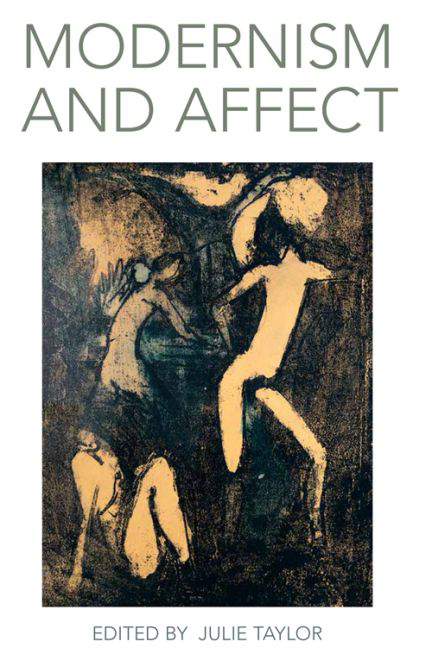Book contents
- Frontmatter
- Contents
- List of Illustrations
- Acknowledgements
- Notes on Contributors
- Introduction: Modernism and Affect
- 1 Mind, Body and Embarrassment in Henry James's The Awkward Age
- 2 The Trauma of Form: Death Drive as Affect in À la recherche du temps perdu
- 3 Logic of the Heart: Affective Ethical Valuing in T. E. Hulme and Max Scheler
- 4 The Line that Binds: Climbing Narratives, Ropework and Epistolary Practice
- 5 The Amplification of Affect: Tension, Intensity and Form in Modern Dance
- 6 Love and the Art Object
- 7 Animating Cane: Race, Affect, History and Jean Toomer
- 8 Fear and Precarious Life after Political Representation in Baudelaire
- 9 Bloom-Space of Theory: The Pleasure and the Bliss of Gerty MacDowell
- 10 From Odysseus to Rotpeter: Adorno and Kafka, Mimicry and Happiness
- 11 Making Happy, Happy-making: The Eameses and Communication by Design
- Index
9 - Bloom-Space of Theory: The Pleasure and the Bliss of Gerty MacDowell
Published online by Cambridge University Press: 15 September 2017
- Frontmatter
- Contents
- List of Illustrations
- Acknowledgements
- Notes on Contributors
- Introduction: Modernism and Affect
- 1 Mind, Body and Embarrassment in Henry James's The Awkward Age
- 2 The Trauma of Form: Death Drive as Affect in À la recherche du temps perdu
- 3 Logic of the Heart: Affective Ethical Valuing in T. E. Hulme and Max Scheler
- 4 The Line that Binds: Climbing Narratives, Ropework and Epistolary Practice
- 5 The Amplification of Affect: Tension, Intensity and Form in Modern Dance
- 6 Love and the Art Object
- 7 Animating Cane: Race, Affect, History and Jean Toomer
- 8 Fear and Precarious Life after Political Representation in Baudelaire
- 9 Bloom-Space of Theory: The Pleasure and the Bliss of Gerty MacDowell
- 10 From Odysseus to Rotpeter: Adorno and Kafka, Mimicry and Happiness
- 11 Making Happy, Happy-making: The Eameses and Communication by Design
- Index
Summary
How to begin when, after all, there is no pure or somehow originary state for affect? (Seigworth and Gregg 2010: 1)
Pleasure of the text, text of pleasure: these expressions are ambiguous because French has no word that simultaneously covers pleasure (contentment) and bliss (rapture). Therefore, “pleasure” here … sometimes extends to bliss, sometimes is opposed to it. But I must accommodate myself to this ambiguity. (Barthes 1975: 19)
In an interview with Gregory J. Seigworth and Melissa Gregg, Lawrence Grossberg speaks of the need to define the ‘specificity’ of what affect has come to encompass, since ‘basically, it's become everything that is non-representational or non-semantic – that's what we now call affect’ (Grossberg 2010: 316). Grossberg accordingly defines affect on the basis of Raymond Williams's ‘structures of feeling’, which he understands to be
about the limits of signification, of representation, and (though I am loath to use the word) the kind of “excess” or “surplus” that is always there through discursive production that is not captured by notions of signification or representation … So, I think that the notion of a gap between what can be rendered meaningful or knowable and what is nevertheless livable is a more interesting place to start. And for me, this connects up in very interesting ways with notions of modernity and everyday life. (ibid.: 318)
As defined by Gregg and Seigworth, one of the aims of the ‘affective turn’ is to move away from the so-called linguistic turn, and it is arguably in that separation that it is constituted as the new in theory. I wish to examine the significance of that break for affect theory as a discourse and its relation to theory more broadly. While the claim that affect can bypass the semiotic is what gives affect theory its modernity as a discourse predicated upon a conscious break from structuralist and post-structuralist linguistics, I should like to interrogate its definition as a non-semiotic force postulated as the ‘livable’ exterior of meaning and the implications of that definition for a discourse that is ostensibly understood through its resistance to proper qualities.
- Type
- Chapter
- Information
- Modernism and Affect , pp. 167 - 184Publisher: Edinburgh University PressPrint publication year: 2015

